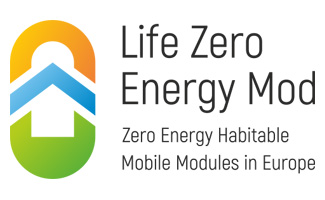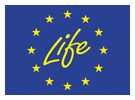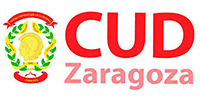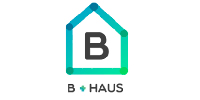The main objective of the ZEROENERGYMOD project is the development and demonstration of a modular, robust, easy to install and easy to transport habitable solution based on the Passivhaus standard together with renewable energy generation, which represents an innovative concept of habitable and easy installation zero emissions module. The solution will consist of two independent and fit together modules, one of them habitable and built under the Passivhaus standard whose energy consumption is highly reduced compared to the modules currently used, and another for the generation of energy consumed which will provide the first module with renewable energy (wind and photovoltaic) and daily (batteries) and seasonal (hydrogen) storage.
The greatest impact expected thanks to the project is the design and construction of an habitable module (PASSIVMOD) with an innovative design that reduces energy consumption by 75% compared to current solutions, and its integration with another innovative module for renewable energy generation production (ENERMOD) which allows renewable generation in different locations thanks to a modular design as well as short-term energy storage through batteries and medium-term through a hydrogen generation and storage system. With the integration of both modules, a modular, transportable and zero emission solution will be achieved with a wide variability of applications.
The final design will be focused on its use in military camps, so the final module developed (PASSIVMOD+ENERMOD) will be installed and tested in two camps belongs to the Spanish Army and located in Zaragoza (Spain) and Latvia, together with an after-LIFE demonstration at the Gabriel de Castilla Antarctic Base, managed by the Spanish Army, which has an extreme climate where energy management is critical.
The project counts on the Aragon Hydrogen Foundation (as coordinator), the University Centre of Defence (Centro Universitario de la Defensa) and the companies B-haus, specialized in PassivHaus construction, and ARPA EMC, with great experience in mobile field equipment.









